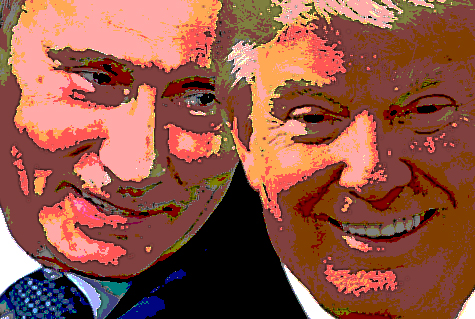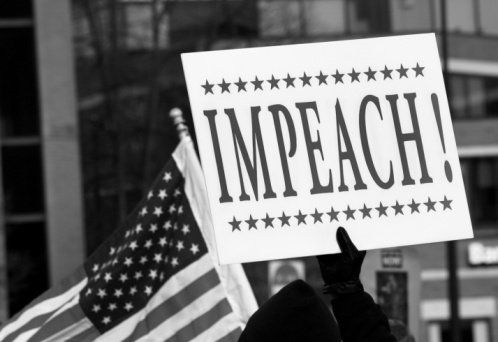Based on news reports, it doesn’t seem Donald Trump is handling himself like a martial arts master, cooly in control. He’s more like an old punch-drunk fighter swinging at every shadow. This morning he attacked Deputy AG Rod Rosenstein:
I am being investigated for firing the FBI Director by the man who told me to fire the FBI Director! Witch Hunt
— Donald J. Trump (@realDonaldTrump) June 16, 2017
The Daily Beast also reports that Trump is furious with Rosenstein and would have no qualms throwing him under the bus.
The word for today, boy’s and girls, is “lawyered.” As in “lawyered up.” Mike Pence has lawyered up. Trump personal attorney Michael Cohen has lawyered up. Bob Mueller also is lawyering up and hiring 13 more lawyers to pursue the investigations.
The investigation has expanded to take in obstruction of justice on Trump’s part as well as little Jared’s business dealings. The list of people being investigated has expanded to included associates of associates.
The circle of people under scrutiny in the various investigations into Russia’s interference in the 2016 election apparently has widened to include Rick Gates (pictured at left), former Trump campaign chairman Paul Manafort’s closest ally on the trail.
According to a memo sent out to former campaign officials and obtained by various news outlets, a lawyer for President Donald Trump’s transition team requested the preservation of all documents related to Russia and Ukraine, as well as travel records and all documents connected to a small handful of former campaign officials. Gates’ name was on that list, sandwiched between other Trump allies known to be under federal investigation like Manafort and Michael Flynn, the ousted national security adviser.
Earlier today there was speculation that Rosenstein would have to recuse himself from the investigation. The Justice Department is now saying otherwise. Or, at least, it’s not recusal time yet.
“As the deputy attorney general has said numerous times, if there comes a point when he needs to recuse, he will. However, nothing has changed,” DOJ spokesman Ian Prior said in a statement, according to the Washington Post.
ABC News reported Friday that sources within the Department of Justice said Rosenstein had acknowleged that he could have to recuse himself in a meeting with colleagues. Rosenstein is overseeing the investigation into Russian meddling, though it is being spearheaded by a special prosecutor, Robert Mueller.
But before the Justice Department statement, Paul Waldman speculated what a Trump version of the Saturday Night Massacre might look like.
If Rosenstein is considering recusal, it’s because of his role in the Comey firing — which, let’s not forget, Trump admitted both on national television and in a conversation with Russian officials in the Oval Office that he did out of unhappiness with the Russia investigation. Rosenstein could become a witness in the obstruction investigation, which would make it problematic for him to be overseeing Mueller. The authority would then fall to Brand. Is Trump going to go after her next? What happens if he orders her to fire Mueller? Would she resign in protest like Richardson and Ruckelshaus, or follow orders like Bork?
“Brand” is Associate Attorney General Rachel Brand, now #3 at the Justice Department. Waldman continues,
While Trump is erratic and impulsive much of the time, he seems particularly so with regard to this investigation. In some limited way it’s understandable — no president likes being investigated — but it seems to be pushing Trump to particular heights of irrationality. If you were trying to limit the investigation and its political fallout and not antagonize the prosecutors, it would be utterly insane to send out these kinds of tweets. Trump’s staff and lawyers are surely begging him to stop. But they can’t control him. There may be people who are willing to stand up to him and tell him that he’s making a mistake, but he’s obviously not willing to listen.
So, even though it would be the height of folly on Trump’s part to try to fire Mueller, he still might try to fire Mueller. But, legally, he cannot do so and would have to find a toady, a Robert Bork, in the Justice Department to do the job for him. But if it gets to that, we’ll know that Trump has totally, utterly lost it.




